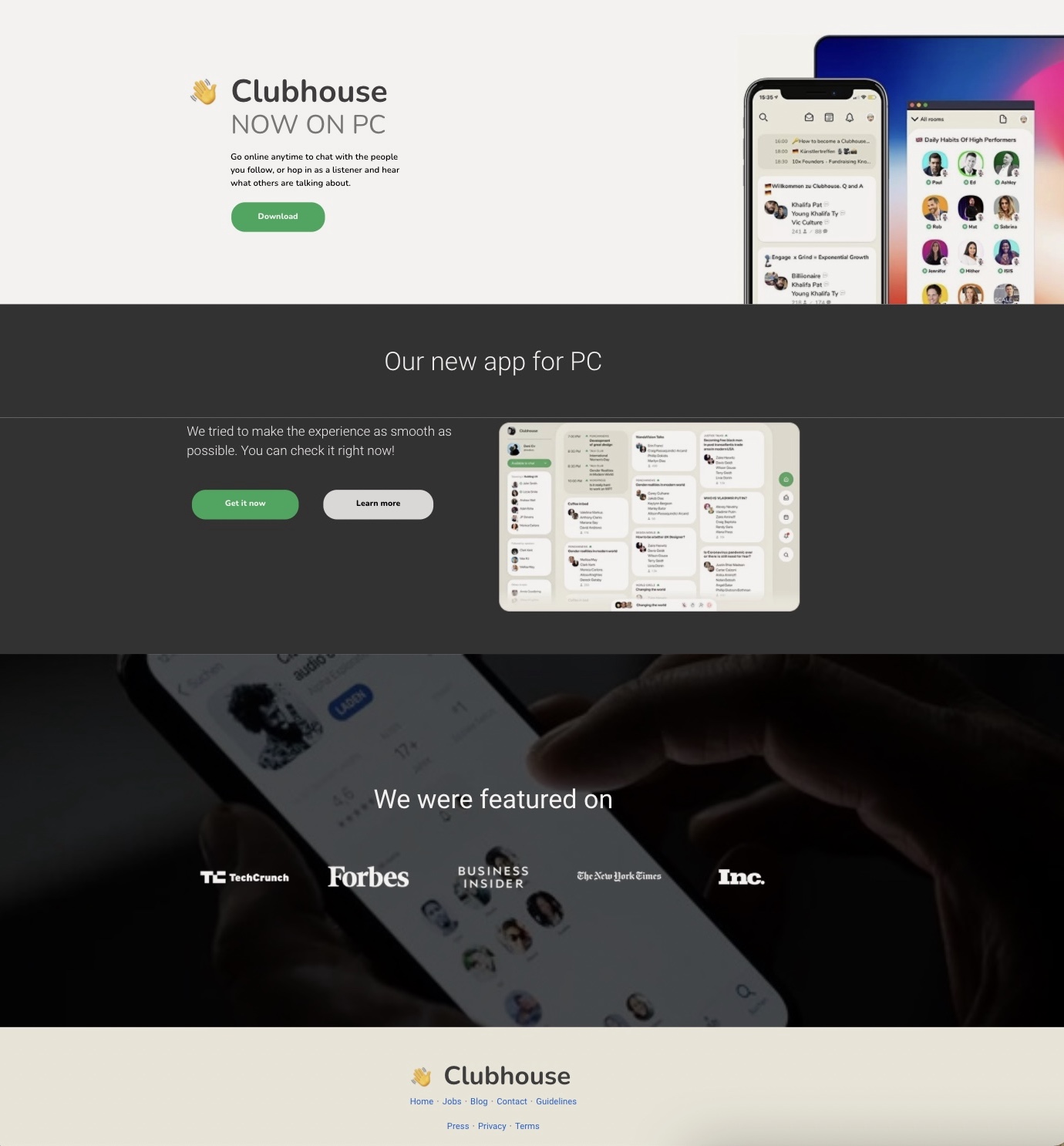Cybercriminals are now a out a number of Facebook ads masquerading as a Clubhouse software for PC users that you just can target unsuspecting victims as well as malware, TechCrunch has practiced.
TechCrunch ended up being alerted Wednesday to Delicious ads tied to several Website traffic impersonating Clubhouse, the drop-in audio chat app only available on iPhones. Clicking on the entire ad would open an important fake Clubhouse website, along with a mocked-up screenshot of the actual non-existent PC app appears to be like, with a download link to each of our malicious app.
When opened, the wicked app tries to communicate with an important command and control vpn server to obtain instructions on what as well as next. One sandbox analysis of that malware released the malicious app attempted to infect the isolated machines with ransomware.
But 24 hour, the fake Clubhouse internet sites — which were hosted appearing in Russia — went in the real world. In doing so , the such apps also stopped working. Guardicore’s Amit Serper, who proven the malware in a sandbox on Thursday, said the actual malware received an error from the server and did next to nothing more.

The fake website was set up to look just like Clubhouse’s real website, so featuring a malicious PC instance. (Image: TechCrunch)
It’s not uncommon to get cybercriminals to tailor ones own malware campaigns to count on off the successes of quite popular apps. Clubhouse reportedly topped more than 8 million completo downloads to date despite an invite-only inaugurate establish. That high demand prompted per scramble to reverse-engineer the particular app to build bootleg kinds of it that will help evade Clubhouse’s gated drywall, but also government censors where the app is slow or stopped up.
Each of the Facebook pages impersonating Club only had a handful of who wants, but were still popular at the time of publication. When come to, Facebook wouldn’t say quite a few account owners had visited the ads pointing to qualify for the fake Clubhouse websites.
At least nine adverts were placed this week around Tuesday and Thursday. A lot of the ads said Clubhouse “is now available for NOTEBOOK, ” while another showed a photo of co-founders John Davidson and Rohan Seth. Clubhouse did not return that request for comment.
The ads have been pulled from Facebook’s Ad Library , although we have published a copy . Hallelujah also not clear how the adverts made it through Facebook’s strategies in the first place.






